
 The SFFaudio Podcast #213 – Scott, Jesse, and Tamahome talk about the Audible.com audiobook The Cyberiad: Fables for the Cybernetic Age by Stanisław Lem
The SFFaudio Podcast #213 – Scott, Jesse, and Tamahome talk about the Audible.com audiobook The Cyberiad: Fables for the Cybernetic Age by Stanisław Lem
Talked about on today’s show:
reality shows, Duck Dynasty, about words, puns, rhyming, nothing, negative, was Lem a robot?, modern or timeless?, H.G. Wells, full of great ideas, fables, fairy tales, The Brothers Grimm, royalty,
“Have it compose a poem- a poem about a haircut! But lofty, tragic, timeless, full of love, treachery, retribution, quiet heroism in the face of certain doom! Six lines, cleverly rhymed, and every word beginning with the letter S!!” …
Seduced, shaggy Samson snored.
She scissored short. Sorely shorn,
Soon shackled slave, Samson sighed,
Silently scheming
Sightlessly seeking
Some savage, spectacular suicide.”
shooting an arrow at a barn, The Hitchhiker’s Guide To The Galaxy by Douglas Adams, Robert Sheckley, robots, the Google Doodle tribute to Stanisław Lem, a metaphor for our reality, the Wikipedia entry on Fables, Aesop’s Fables, Eric S. Rabkin, Scott is interested in Lem, Karol Wojtyła (aka Pope John Paul II), Poland, a small interesting country, Memoirs Found In A Bathtub, Audible’s audiobook, why did Jenny “Lem” this Lem?, Fox is not necessarily always the same fox, distant past? distant future?, “mostly harmless” palefaces, Princess Crystal, everybody’s a robot, a suitable suitor,
“Your Highness, my name is Myamlak and I crave nought else but to couple with you
in a manner that is liquid, pulpy, doughy and spongy, in accordance with the customs of
my people. I purposely permitted myself to be captured by the pirate, and requested him
to sell me to this portly trader, as I knew the latter was headed for your kingdom. And I
am exceeding grateful to his laminated person for conveying me hither, for I am as full of
love for you as a swamp is full of scum.”
The princess was amazed, for truly, he spoke in paleface fashion, and she said:
“Tell me, you who call yourself Myamlak the paleface, what do your brothers do
during the day?”
“O Princess,” said Ferrix, “in the morning they wet themselves in clear water, pouring
it upon their limbs as well as into their interiors, for this affords them pleasure.
Afterwards,
they walk to and fro in a fluid and undulating way, and they slush, and they
slurp, and when anything grieves them, they palpitate, and salty water streams from
their eyes, and when anything cheers them, they palpitate and hiccup, but their eyes
remain relatively dry. And we call the wet palpitating weeping, and the dry—laughter.”
“If it is as you say,” said the princess, “and you share your brothers’ enthusiasm for
water, I will have you thrown into my lake, that you may enjoy it to your fill, and also I
will have them weigh your legs with lead, to keep you from bobbing up …”
“Your Majesty,” replied Ferrix as the sage had taught him, “if you do this, I must
perish, for though there is water within us, it cannot be immediately outside us for longer
than a minute or two, otherwise we recite the words ‘blub, blub, blub,’ which signifies our
last farewell to life.”
“But tell me, Myamlak,” asked the princess, “how do you furnish yourself with the
energy to walk to and fro, to squish and to slurp, to shake and to sway?”
“Princess,” replied Ferrix, “there, where I dwell, are other palefaces besides the
hairless variety, palefaces that travel predominantly on all fours. These we perforate until
they expire, and we steam and bake their remains, and chop and slice, after which we
incorporate their corporeality into our own. We know three hundred and seventy-six
distinct methods
of murdering, twenty-eight thousand five hundred and ninety-seven
distinct methods of preparing the corpses, and the stuffing of those bodies into our bodies
(through an aperture, called the mouth) provides us with no end of enjoyment.
Indeed,
the art of the preparation of corpses is more esteemed among us than astronautics and is
termed gastronautics, or gastronomy—which, however, has nothing to do with
astronomy.”
“Does this then mean that you play at being cemeteries, making of yourselves the
very coffins that hold your four-legged brethren?”
the poet robot,
Trurl adjusted, modulated, expostulated,
disconnected, ran checks, reconnected, reset, did everything he could think of, and the
machine presented him with a poem that made him thank heaven Klapaucius wasn’t
there to laugh—imagine, simulating the whole Universe
from scratch, not to mention
Civilization in every particular, and to end up with such dreadful doggerel! Trurl put in six
cliche filters, but they snapped like matches; he had to make them out of pure corundum
steel. This seemed to work, so he jacked the semanticity up all the way, plugged in an
alternating rhyme generator—which nearly ruined everything, since the machine
resolved to become a missionary among destitute tribes on far-flung planets. But at the
very last minute, just as he was ready to give up and take a hammer to it, Trurl was
struck by an inspiration; tossing out all the logic circuits, he replaced them with
self-regulating egocentripetal narcissistors. The machine simpered a little, whimpered a
little, laughed bitterly, complained of an awful pain on its third floor, said that in general it
was fed up, though, life was beautiful but men were such beasts and how sorry they’d all
be when it was dead and gone. Then it asked for pen and paper. Trurl sighed with relief,
switched it off and went to bed.
Men are such beasts but we’ll be sad when they’re gone, the paperbook, kudos to narrator Scott Aiello, satire of something, Mandrillion the Greatest, ruler of the Multitudians, the perfect advisor, fantasy with Science Fiction language, lawyer soup, Escape Pod, Peter Swirski, A Stanislaw Lem Reader, reviews, people who review Lem, Lem = genius, sitting in awe, “Imagine a mixture of Borges, Calvino, Saint-Exupéry, Pynchon, Douglas Adams, Samuel Beckett, L. Frank Baum, Dr. Seuss, Lewis Caroll, and perhaps a little Philip K. Dick. That’s what this is like, sort of.”, complete impatience with reading “another one of these or another one of those”, A Perfect Vacuum, a big show-off, the ideas per story quotient, Gene Wolfe, Jorge Luis Borges, meta, overwhelming wordplay, digressions aplenty, format and rules, classic Hard SF, the hyperdrive handwaviumed away, all of language is handwavium, Sodium stars with an N, we think when we’ve named something we’ve understood it, make sense out of nonsense, stardust into toilet seats:
Feeling dismay rather
than disappointment at this neglect, I immediately sat down and wrote The Scourge of
Reason, two volumes, in which I showed that each civilization may choose one of two
roads to travel, that is, either fret itself to death, or pet itself to death. And in the course
of doing one or the other, it eats its way into the Universe, turning cinders and flinders of
stars into toilet seats, pegs, gears, cigarette holders and pillowcases, and it does this
because, unable to fathom the Universe, it seeks to change that Fathomlessness into
Something Fathomable, and will not stop until the nebulae and planets have been
processed to cradles, chamber pots and bombs, all in the name of Sublime
Order, for only a Universe with pavement, plumbing, labels and catalogues is, in its sight, acceptable
and wholly respectable.
the are no rules in The Cyberiad, owookiee’s 1 star review of The Cyberiad, a Droopy cartoon as directed by Tex Avery, The Perfect Imitation adapted, saggy biologicals, Daniel Mróz’ illustrations, Tobias Buckell’s blog post about The Fate Of Today’s Book Bloggers, the way Luke Burrage reviews books, a constructed object vs. a piece of art, conversations between writers, how books should be talked about, the SFSignal new releases posts, zombie novels, you’re reading the books wrong, you should read by author, Donald E. Westlake, Lawrence Block, Telling Lies For Fun And Profit, Philip K. Dick, George R.R. Martin, Fred Himebaugh (@Fredosphere), Twitter fight!, looking for reasons not to read books, Your Movie Sucks by Roger Ebert, if a book sucks you usually stop reading that author entirely, Neal Stephenson, positive that tell you nothing about why it’s good, wandering through the woods eating rocks and bark, moods, Star Wars fans, get meta, reviewing novels vs. short stories, in the context, negative reviews tell you a lot more about a book than positive reviews, this book has too much science, Star Trek: Deep Space Nine, Star Trek, Battlestar Galactica, panspermia and ancient astronauts, the finite and the infinite, iTunes U, characters on Battlestar Galactica are always confronted the question “what is human?”, synthesis, the enemy is the ally, the enemy is indistinguishable from one’s self, a space fable, Caprica, Sumerian Aramaic Sanskrit and Battlestar Galactica, Babylon 5, Firefly, a gift of kindness, Porco Rosso, Hayao Miyazaki, what is IT Tam?
Posted by Jesse Willis
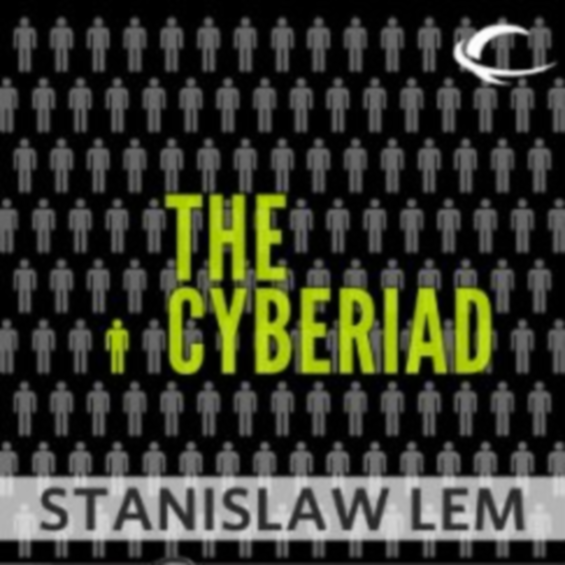


 The Hoard Of The Gibbelins
The Hoard Of The Gibbelins
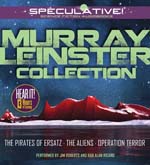 Murray Leinster Collection
Murray Leinster Collection Kurt Vonnegut Jr. Collection
Kurt Vonnegut Jr. Collection Edmond Hamilton Collection
Edmond Hamilton Collection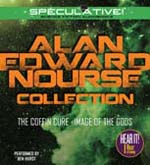 Alan Edward Nourse Collection
Alan Edward Nourse Collection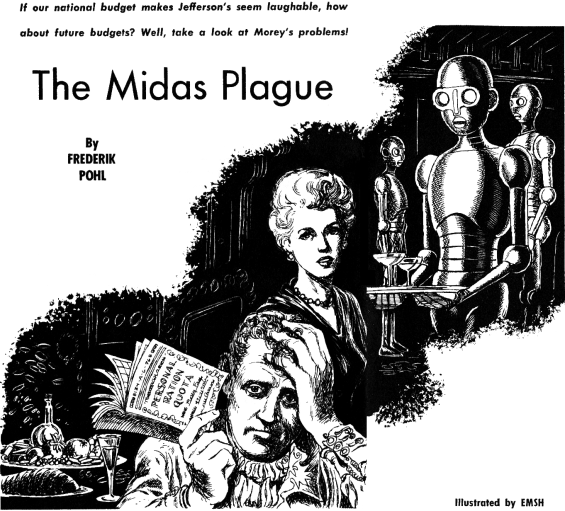


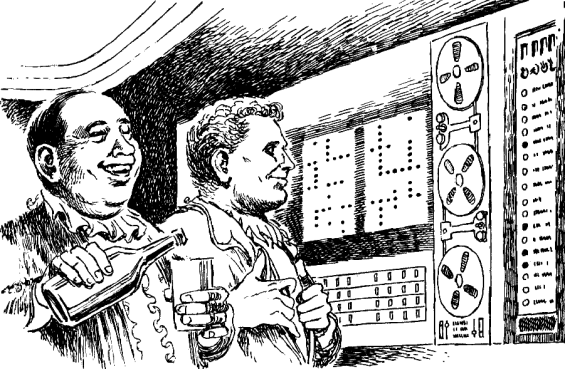
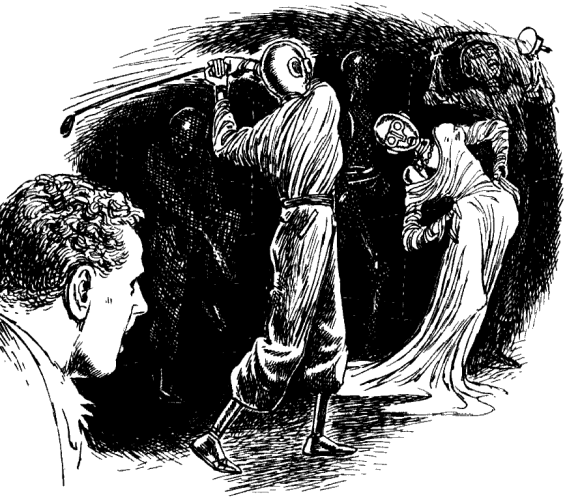
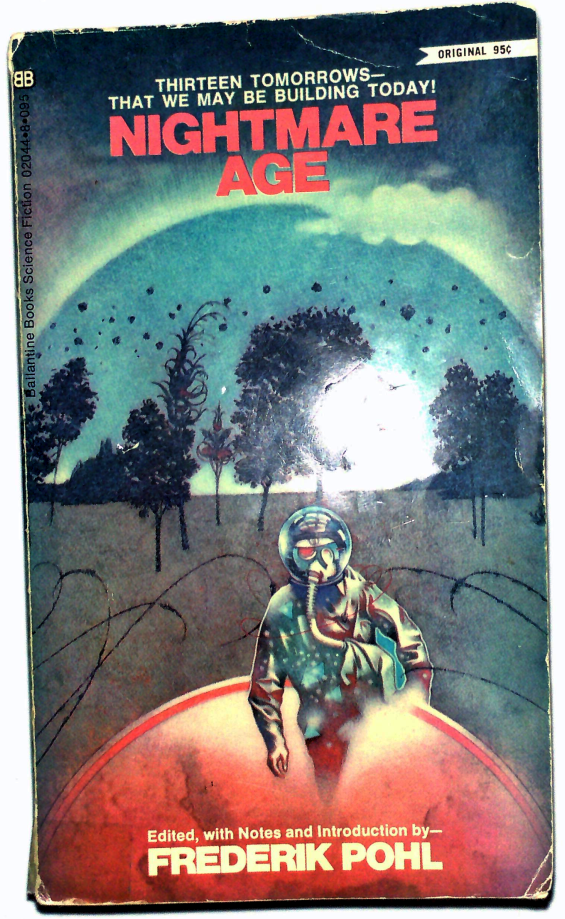
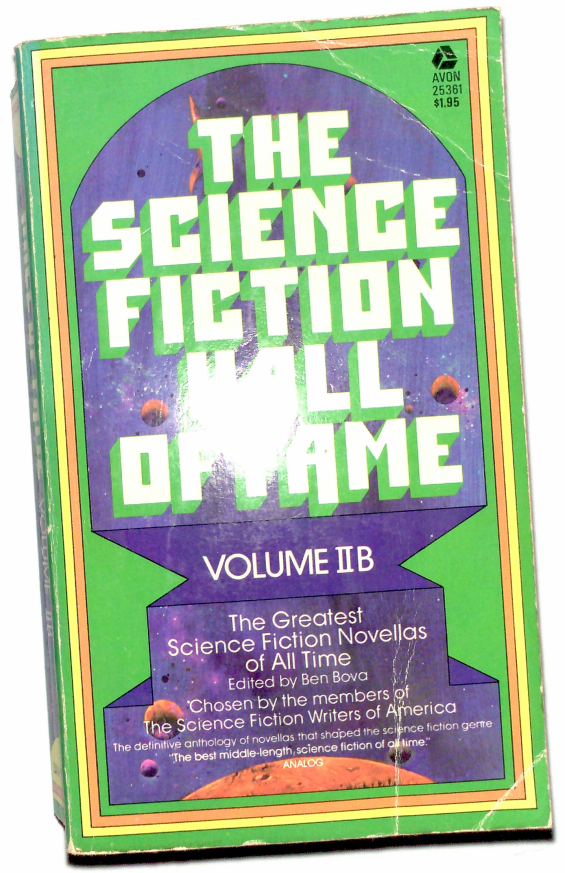



 CBS Radio Workshop – Never Bet The Devil Your Head
CBS Radio Workshop – Never Bet The Devil Your Head